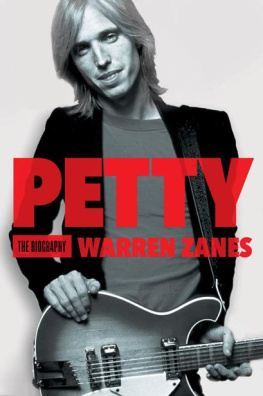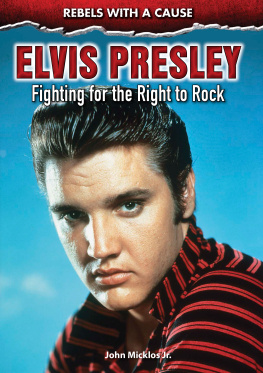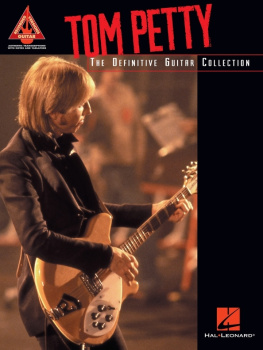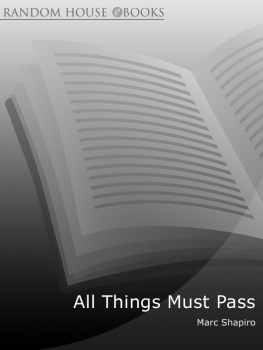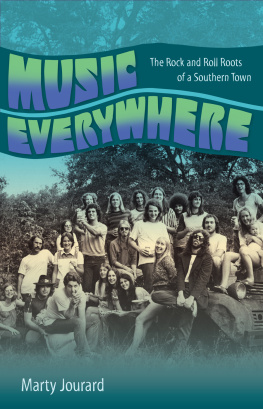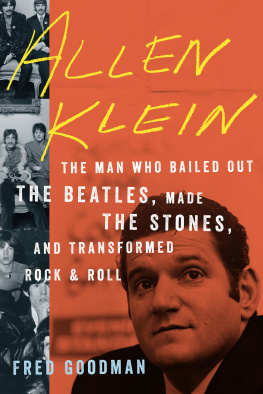
Thank you for buying this
Henry Holt and Company ebook.
To receive special offers, bonus content,
and info on new releases and other great reads,
sign up for our newsletters.

Or visit us online at
us.macmillan.com/newslettersignup
For email updates on the author, click here.
The author and publisher have provided this e-book to you for your personal use only. You may not make this e-book publicly available in any way. Copyright infringement is against the law. If you believe the copy of this e-book you are reading infringes on the authors copyright, please notify the publisher at: us.macmillanusa.com/piracy.
For Lucian and Piero, always
I wasnt much more than a child, lost in the land of the lost. It was preadolescence. My brother, four years older, had twisted my mothers arm and had her growing pot by the garbage bag full. I thought it was a beanbag chair in his back bedroom, until I caught him smoking it. My sister, two years older, was wearing homemade dresses and collecting volumes of fairy tales from around the world. I would avoid her in the hallways at school. There was no father at home. That was when I heard Tom Pettys music for the first time, on WBCN in Boston. FM radio was in its AOR phase and seemed like it would be there forever. The song was Breakdown.
The Heartbreakers stepped into a shifting landscape, a moment of category confusion. New wave hadnt emerged as the near catchall term that it would become. Singer-songwriters were generally regarded as musicians who played acoustic guitars, didnt dance or otherwise bring any trace of James Browns influence into the room, and between songs talked lightly of politics to well-behaved audiences. On that first Heartbreakers album, Tom Petty wore a leather jackethe wasnt going to be thrown in with James Taylor. And the songs were too short, too close to Chuck Berry to land the group in the rock territory where Led Zeppelin still held the cave. The Heartbreakers opened shows for KISS. And then for Al Kooper. They were booked as an opener for Rush, for the Runaways, once even for a Tom Scott and the L.A. Express show, where an audience member called out, What is this? The Monkees? Not sure what else to do, critics regularly dropped Petty and his band into the punk category. Soon enough, new wave would give him another place to live. But even that didnt last: before long, people started calling them a rock-and-roll band.
It was a good moment for music; even if denigrating it was the necessary pose, pissing on Foreigner and Styx as if they were an active threat. Punk, while not a thing of the mainstream, had a kind of cleansing effect that extended upward from below. A lot became possible. Talking Heads, Elvis Costello, Mink Deville, Rockpile, Tom Petty and the Heartbreakers, Television, Graham Parkerall seemed like they belonged to the same family, and punk was somehow their birth mother, though many of them were at work years before Malcolm McLaren started selling clothes on Kings Road. For those who did have records out before punk became official, punk gave them an extended, sometimes dysfunctional family.
In the home I grew up in, we alternated between listening to WROR, an oldies stationthanks to a hippie uncle raised in the fiftiesand WBCN, which played most of the acts named above. Something in the new music reminded us of what we liked in the old stuff. But Petty seemed to connect those two worlds better than anyone. Not the intellectual gymnast that Elvis Costello was, never as grandly romantic as Springsteen or as simultaneously strange and canny as Talking Heads, Petty nonetheless got in there a little deeper than the others.
Breakdown had as much space as Green Onions. The Heartbreakers often revealed who they were in what they didnt play. It set them apart. If they were born under the sign of the Beatles and the Stones, the band was also a distinctly southern actthough not in the cartoon sense of, say, the Charlie Daniels Band, with the rehashed southern imagery that, for whatever reason, played well in middle America. The Heartbreakers had a different southernness, in some ways more like the Dan Penns and Eddie Hintons, musicians and writers who had been raised on the black sounds around them, players who held back when there was a song in the room, because there was a song in the room.
But there was something more going on, something beyond the groove, the taste, the lean but tough musicality. Pettys voice. He wasnt obvious as a lead singer. But there was a character in there. What would one day be celebrated as his defiance was present from the beginning. But it would have been nothing, would have meant nothing, without his romanticism. The defiance would have been empty. Pettys romanticism wasnt along the lines of Bruce Springsteens or Tom Waitss, two songwriters who worked with elaborate panoramas of image, character, and place. His narratives were always more skeletal, perhaps less self-conscious. All three writers created songs that could be seen. They were children of the movies, bringing to their songwriting what they learned in darkened theaters. But Pettys scenes were fewer, as though half the storyboards had been thrown in the dumpster out back. Perhaps because of that, Petty made a little more room for the listener. His werent the meticulously painted landscapes of Jungleland or even Jersey Girl, songs in which people spoke of carrying guns across the river and ran into corner boys. Not that Petty didnt have the detailbut it was the spare way in which he used it. He wasnt out to do for Florida what the others did for New Jersey and Los Angeles. Maybe because of that, you didnt get tangled up in information that ultimately took you too far from where you lived. American Girl seemed to be wide open for listeners to see themselves in the picture. I certainly saw myself. Something happened when that voice delivered those words in that way.
I didnt think it through in this way then, of course, not when I first found Tom Petty and the Heartbreakers. I just knew in the drag of those years he was a good person to have around. Its the time when music means more than it ever will again. But it wasnt just me, and it wasnt just about being young; it seemed like everyone in my house was hanging on one Petty song or another. He grasped our circumstances. My mother eventually stopped growing pot for her kids. But she still listens to Damn the Torpedoes .
* * *
Ten years after hearing my first Heartbreakers records, just out of my teens but by that time in a rock-and-roll band and on the road, I was in my hotel room at the Hyatt on Sunset, the less than spectacular but somehow historically significant hotel Led Zeppelin had christened the Riot House. We were only there because at some point we had been told to want that, and we were good students of foolishness. My band had just finished a three-night run at the Roxy. Every evening from the stage we informed the audience that we wanted Tom Petty to come down to a show, as if they had some pull. During the days between the gigs, in every interview we did, we said the same thing to journalists. We figured someone out there had to know more than we did about how to get Tom Petty out of the house.
But the last show was over and it was almost 3:00 a.m. I was in the bass players room, where the party was unfolding, when I heard the phone ring in my adjoining room. I went in and picked it up.
Is this Warren?
Yeah.
This is Tom Petty.
Who is this?
Its Tom Petty but I just drank a bottle of wine. Im a little drunk.
You sound like Tom Petty.
That happens when I drink.
Next page
